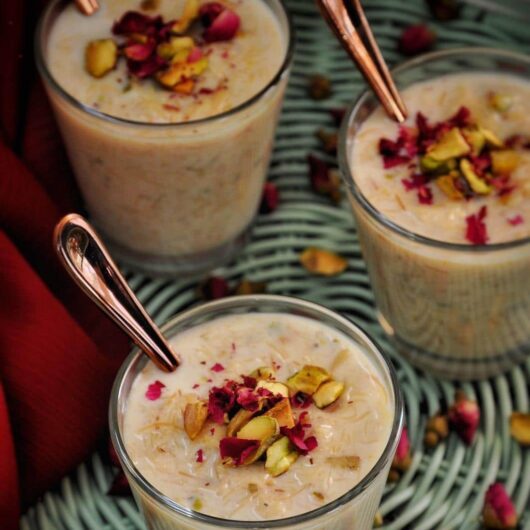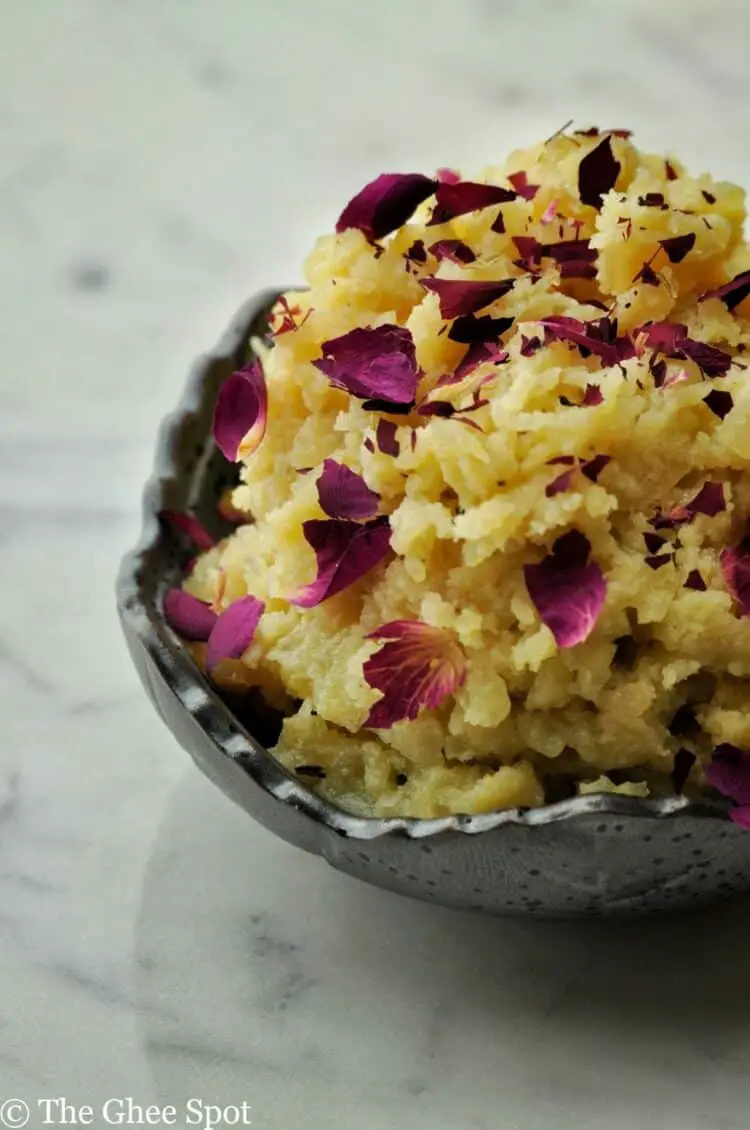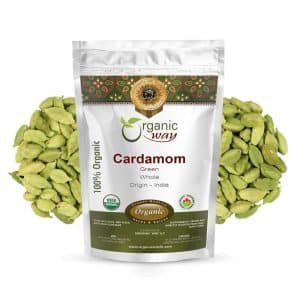Opo is just disgusting. Lauki halwa on the other hand is divine.
Anyone that says they love lauki is not to be trusted. Opo tastes green, slightly bitter, and when cooked turns to the texture of phlegm. If you’re still reading this (if you are clearly you’re a masochist) you’re probably wondering, “How is this a sales pitch?” Well, allow me to say, the best sales pitch for food is, “Ew this is so gross, try it” But that bit aside, lauki halwa is absolutely delicious. I SWEAR!
You take a disgusting opo squash and turn it into a rich, creamy, and decadent dessert. The halwa has all the rich deep flavors of cardamom, milk, almonds, and sugar that you’d want in a Punjabi dessert. Plus because you dry cook the squash it gives it a really nice cooked carrot-like texture. This dessert is perfect for winter, holidays, or any time you can get your hands on an opo squash.
You can find versions of lauki halwa throughout India. The most famous being in Rajasthan. There’s some debate as to whether delightful halwa originated in Rajasthan. And honestly, it’s highly possible that at some point in history, it originated there and made it’s way to Punjab. If so, lucky us for having seen the yumminess for what it is and having made it part of the local cuisine. What I love most about this dessert is just how creamy the dish is. I know a lot of recipes use khoya or condensed milk but for me, that’s a no go. It makes the texture way too gooey for my liking, but the heavy whipping cream is perfect.
Looking for a few more creamy desserts? Try these:
Nutrition Facts
6 servings per container
Calories392
- Amount Per Serving% Daily Value *
- Total Fat
22.4g
34%
- Saturated Fat 11.7g 56%
- Cholesterol 59mg 20%
- Sodium 65mg 3%
- Amount Per Serving% Daily Value *
- Potassium 147mg 5%
- Total Carbohydrate
44.3g
15%
- Dietary Fiber 1.1g 4%
- Sugars 39.2g
- Protein 7g 15%
- Calcium 14%
- Iron 2%
- Vitamin D 55%
* The % Daily Value tells you how much a nutrient in a serving of food contributes to a daily diet. 2,000 calories a day is used for general nutrition advice.





